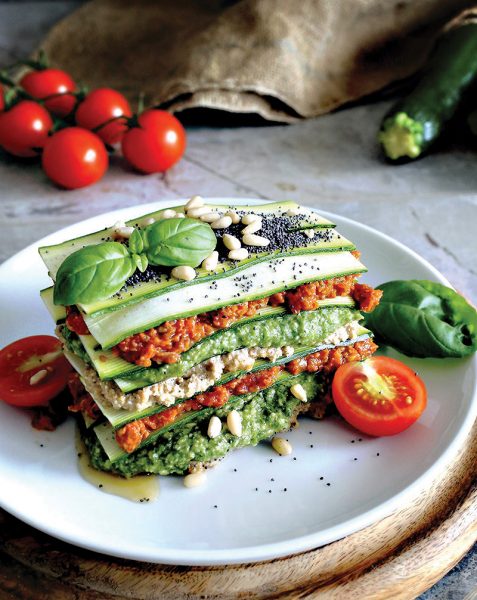
Nandhini Sadasivam
A natural
diet is important in order to maintain good health and prevent diseases. The
basic underlying explanation of all diseases is the accumulation of waste
materials through years of wrong food habits and improper combinations of foods
and meal timings.
In naturopathy, food is classified as acidic or alkaline,
live or dead food, eliminative, soothing, constructive, vegetarian or
non-vegetarian, liquid, fruit, mono fruit diet, etc. Naturopathy gives more
emphasis on raw food rather than cooked food, and having the right food at the
right time with the right combination. If food is properly selected, rationally
combined and judiciously consumed it will keep the body away from diseases by
supplying the alkaline elements in organic form. The preference of food in
naturopathy is with their natural properties, which will help one’s health and
protect the body from external influences and diseases.
If people learn to select the right food, combine food
correctly and balance their food suitably as per age, occupation and climate,
it would make a lot of difference in their health. Naturopathy believes that
food has a great influence on the mind, everything we eat and drink is
transported by the blood, which reflects in the nervous system.
Raw diet: Raw
fruits and vegetables are the perfect foods as they are low in calories, but
high in nutritive value. They contain all the vitamins and minerals required by
the body in their natural state. A raw diet consists of fresh fruits and dry
fruits, raw vegetables, nuts, sprouted whole grain cereals and pulses, etc.
Eliminative diet: The
diet which is widely helpful in cleansing the system is called eliminative
diet. This diet stimulates the eliminative organs like the kidney and intestine
and encourages the detoxification of the body by eliminating waste matter and
toxins from the system. Foods like citric juices, lemon water, tender coconut
water, water content fruit juices, etc, are generally added to this diet.
Soothing diet: When
the body is almost clean and detoxified, the next diet is the soothing diet.
This is slightly filling and one does not feel as though he/she is fasting. The
food items in this phase generally consist of wheat grass juices, green juices,
water content fruits and juices, green vegetable/leafy soups, boiled
vegetables, buttermilk, sprouts, etc.
Constructive diet:
Once the body is totally detoxified, one is advised a constructive diet as
his/her new blood, lymph and body cells are building up normally after
cleansing. The food items in this phase generally consist of wholesome flour,
unpolished rice, pulses, sprouts, curd, etc. These diets help in improving
health, purifying the body and increasing immunity. Moreover, the time and
state of mind is equally important while consuming food. To build and maintain
proper health it is necessary to observe the health laws such as fresh air and
sunshine, deep breathing, exercise, rest, relaxation, sleep, right mental
attitude, internal cleanliness and proper elimination.
Diet and diseases:
Naturopathy believes that diseases are the results of violation to the laws of
nature. Modern science states that lifestyle is one main reason for diseases.
It is widely accepted that appropriate lifestyle changes including inclusion of
exercise and dietary modification may lower the risk of diseases. To reduce the
risk of disease and to improve the vitality one has to follow the laws of
nature in terms of exercise, rest, diet, etc. Naturopathy, the drugless systems
of healing improves the functioning of entire body system by correcting the
lifestyle.
Foods to be
Included: Slimy, warm, freshly cooked, semi-solid, easily chewable and
digestible, bland food, and fruits and
fresh vegetables.
Grains: Rice,
corn, brown rice, Quinoa, oats, barley, buck wheat, wheat noodles, semolina,
ragi.
Fruits and juices:
Guava, amla, strawberries, apples, papaya, melons, pears, kiwi, peaches,
cantaloupes, oranges, lemons and wheat grass juice.
Soups: Vegetable base soups like ladies finger, tomato,
carrot, bottle gourd, etc.
Vegetables to be
added in daily food: Spinach, ash gourd, broccoli, bitter gourd, and all gourd
variety of vegetables, plantain pith, zucchini, cucumbers, cauliflower,
carrots, beans, asparagus, lettuce, mint, garlic, ginger coriander, parsley,
okra, white onions, turnips, raw papaya, beets, elephant yam, curry leaves,
cluster beans, brinjal, raw plantain, sprouts, radish, cabbage and Drumstick
leaves.
Pulses and seeds:
Green gram, moong dal, tur dal, sesame seeds, pumpkin seeds, sunflower seeds,
flax seeds and horse gram.
Spices: Black
pepper, rosemary, basil, cardamom, turmeric, cumin powder or seeds, poppy seed,
fenugreek and asafoetida.
Sweeteners: Honey,
agave nectar, palm sugar, brown sugar and Himalayan salt.
Drinks: Hibiscus
tea, ginger tea, cinnamon tea, cumin water, diluted coconut water and
buttermilk.
Oils: Olive oil
and sesame oil.
The diet followed in naturopathy is truly natural. It
recognises food as medicine. Patients are advised wholesome naturopathy diet along
with other naturopathy treatment modalities to manage disease conditions.
However, there is an urgent need of providing correct dietary education to the
people, so that, they could understand the concepts of diet and utilise the
knowledge for the prevention of disease and betterment of health.
Naturopathy is always with state and in the concept of we
are what we eat.
(Writer naturopathy and yoga consultant at Traya Natural
Health Centre, Dona Paula and can be reached at wellnesstraya@gmail.com)